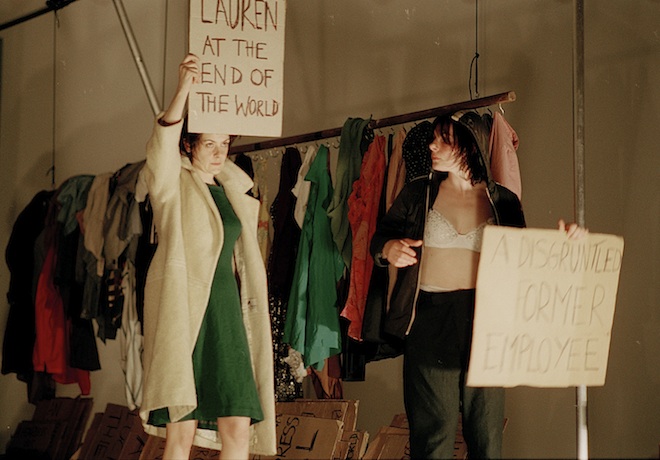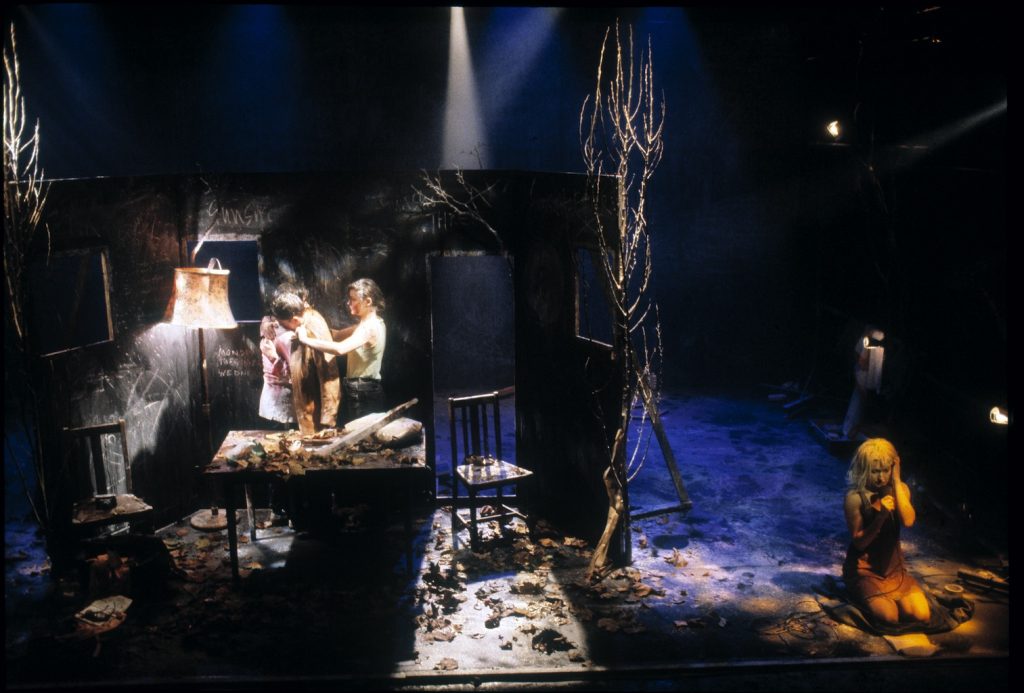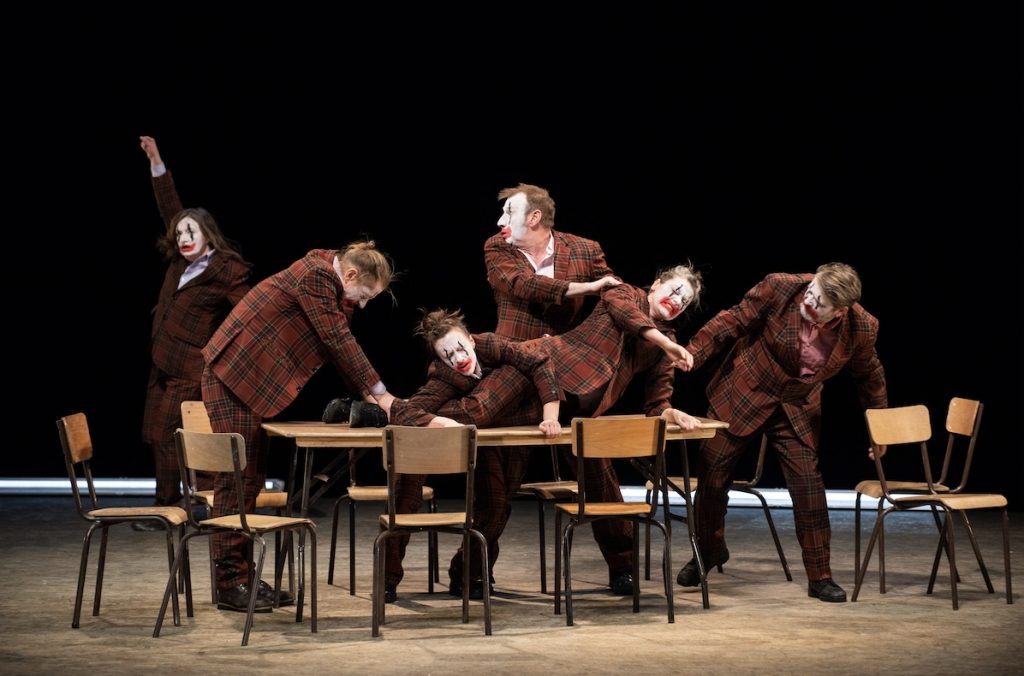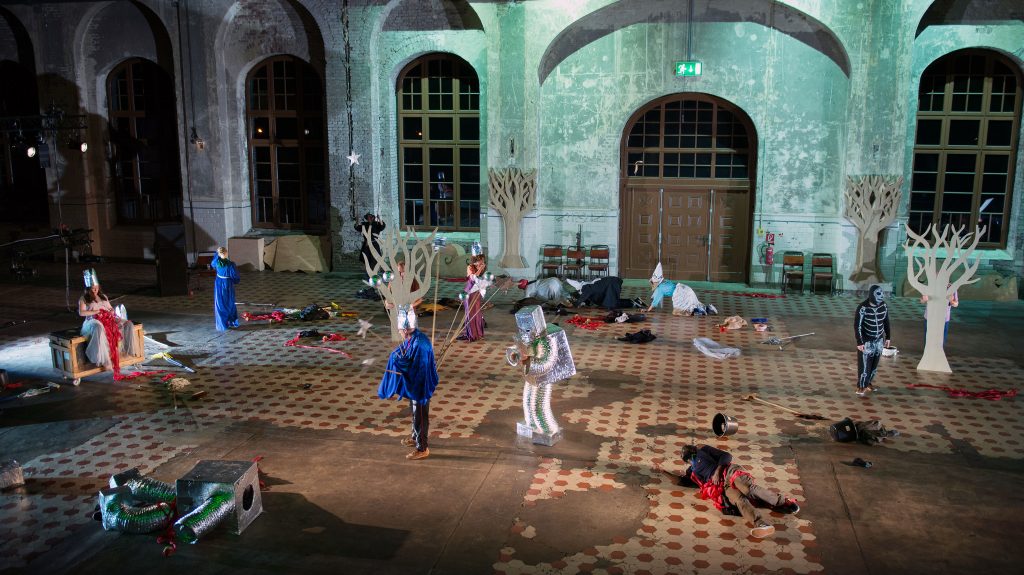Suggested Donation
This is an extract from an interview with Tim Etchells, Artistic Director of Forced Entertainment – read the full interview here.
Mostly we cultivate a certain kind of mundanity on the stage: the idea that the performance is being built in front of you, here and now, using very basic materials, in quite easy to understand ways. Things build up over a piece; a language is established in the beginning and it becomes more complex. The raw material initially is quite basic and the moves that the performers make on it are quite basic as well. We often chose to start from a deliberately difficult or unpromising position. A good example is an early Forced Entertainment piece Club of No Regrets in which a set of scenes are enacted by two performers. In the first enactments of the scenes they’re parcel taped to chairs so they can’t move and their mouths are parcel taped shut. You can’t really hear what they’re saying but they’ve got their little papers with the scenes on, so you sort of understand that they’re enacting these fragmentary dramas. It’s as far from virtuoso as it could get! We make a deliberately unpromising proposal at the beginning – something dramatically minimal, even stunted – but over time the performers are cut out of the chairs, they ‘memorise’ the lines from the papers, they start to perform them more, music comes in to support them and the theatrical energy and power of the piece builds. It’s about journey and about using simple building blocks. We start from a much more ‘here and now’ sort of situation and in that sense we try to look not very virtuosic, much more amateur – as if the work is simply thrown together. It’s ironic though, as I was saying before – if you look at the work we’ve done over thirty-four years: often minutely scoring endless hours of performance and getting to the point where we can reconstruct very complex improvisations involving ten people with sound and light and make it look like it’s just happening, here and now – there is of course a huge virtuosity in that. It’s just a kind of virtuosity that hides itself.
There’s a really good interview with Stewart Lee where he talks about how he thinks of himself as writer but he does all of his work as a writer trying to make what he does not look or sound like writing at all. It should look like he’s just standing there saying whatever comes into his head and, if it doesn’t seem like that, then he thinks he’s not doing a good job. There’s often a similar sense in our own work: most of the effort goes into trying to make things look like they’re just happening – all of the hard work, the real virtuoso work, is done achieving that.




